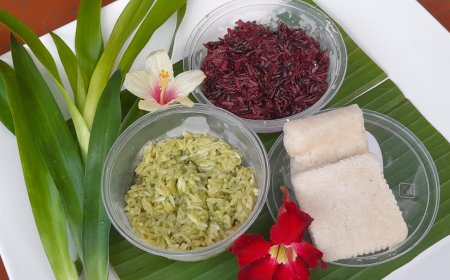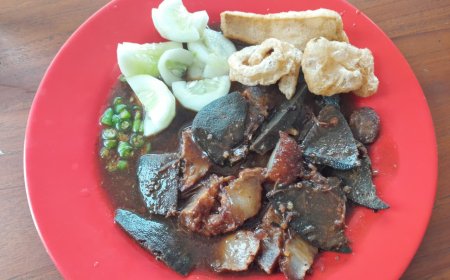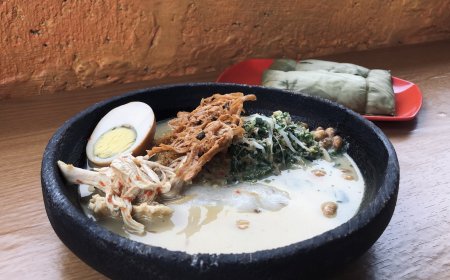Jukut Ares: A Traditional Balinese Culinary Delight Made from Banana Tree Stems
Jukut Ares is a traditional Balinese dish made from the young stem of the banana tree, prepared with Bali’s signature Base genep spice blend. This dish has a savory, rich, and spicy flavor, making it special for traditional ceremonies and important celebrations. More than just a culinary delight, Jukut Ares symbolizes gratitude, togetherness, and the wisdom of making the most of nature’s offerings. This dish is a cultural heritage that should be preserved, as it not only brings the authentic taste of Bali but also strengthens the cultural identity of the Balinese people amidst changing times.
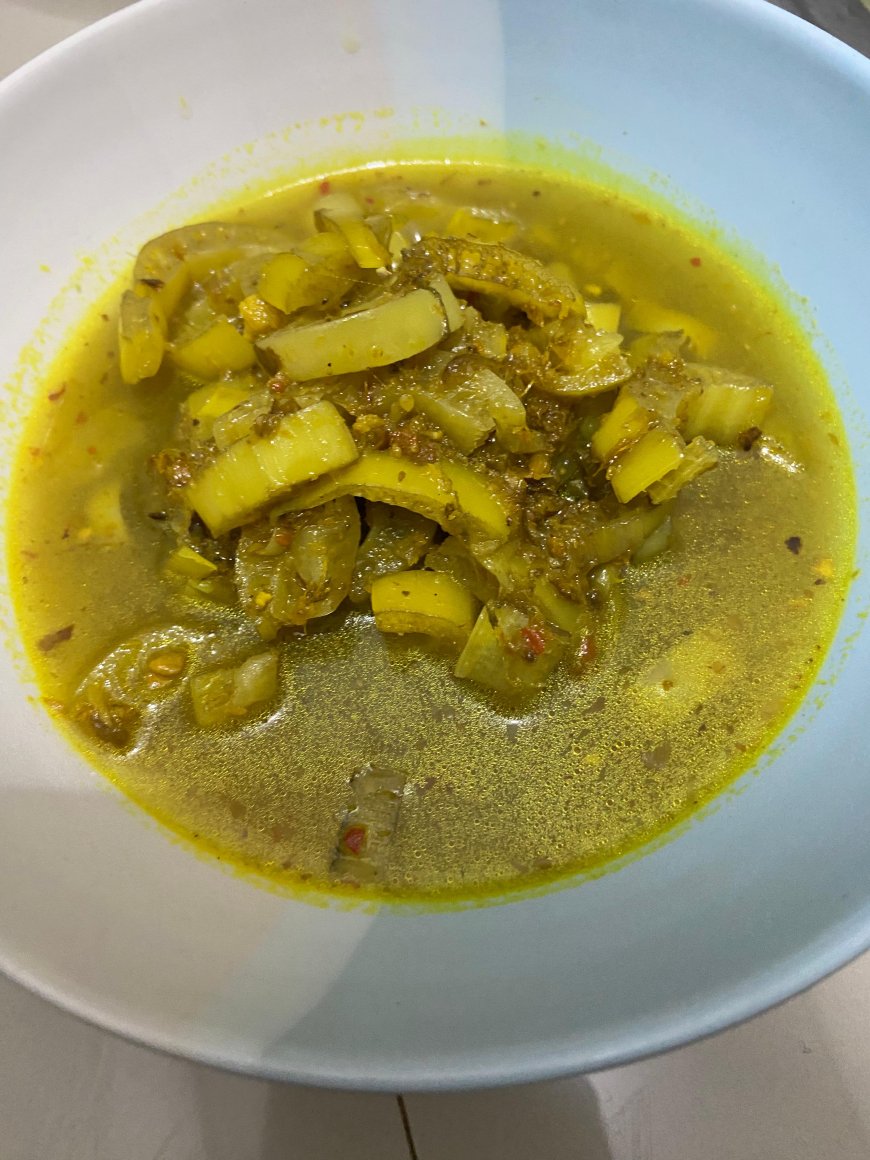
Jukut Ares is a traditional Balinese culinary dish that holds a unique taste and rich cultural meaning. This dish is made from specially selected young banana tree stems to achieve a distinctive texture and flavor. Jukut Ares is typically served at important events, such as weddings, traditional ceremonies, and other religious gatherings. Beyond being a dish, Jukut Ares symbolizes gratitude, togetherness, and well-wishes for the Balinese people, who live in harmony with nature and tradition.
The cultural significance of Jukut Ares extends beyond its unique ingredients. The banana tree plays an important role in daily Balinese life, with its leaves, fruit, and even its stem used in various ways. For this dish, young banana stems are selected, providing a soft texture and a neutral taste that absorbs spices well. The flavor and aroma of Jukut Ares are distinctive, thanks to the use of Base genep, a traditional Balinese spice mix rich in spices. This mix creates a complex and appetizing taste profile.
Ingredients of Jukut Ares
1.Young Banana Tree Stem: The chosen stems are young, offering a tender texture that easily absorbs the spices.
2.Meat (optional): Small pieces of pork or chicken can be added. Although optional, the meat adds a savory depth and richness to the dish for those who consume it.
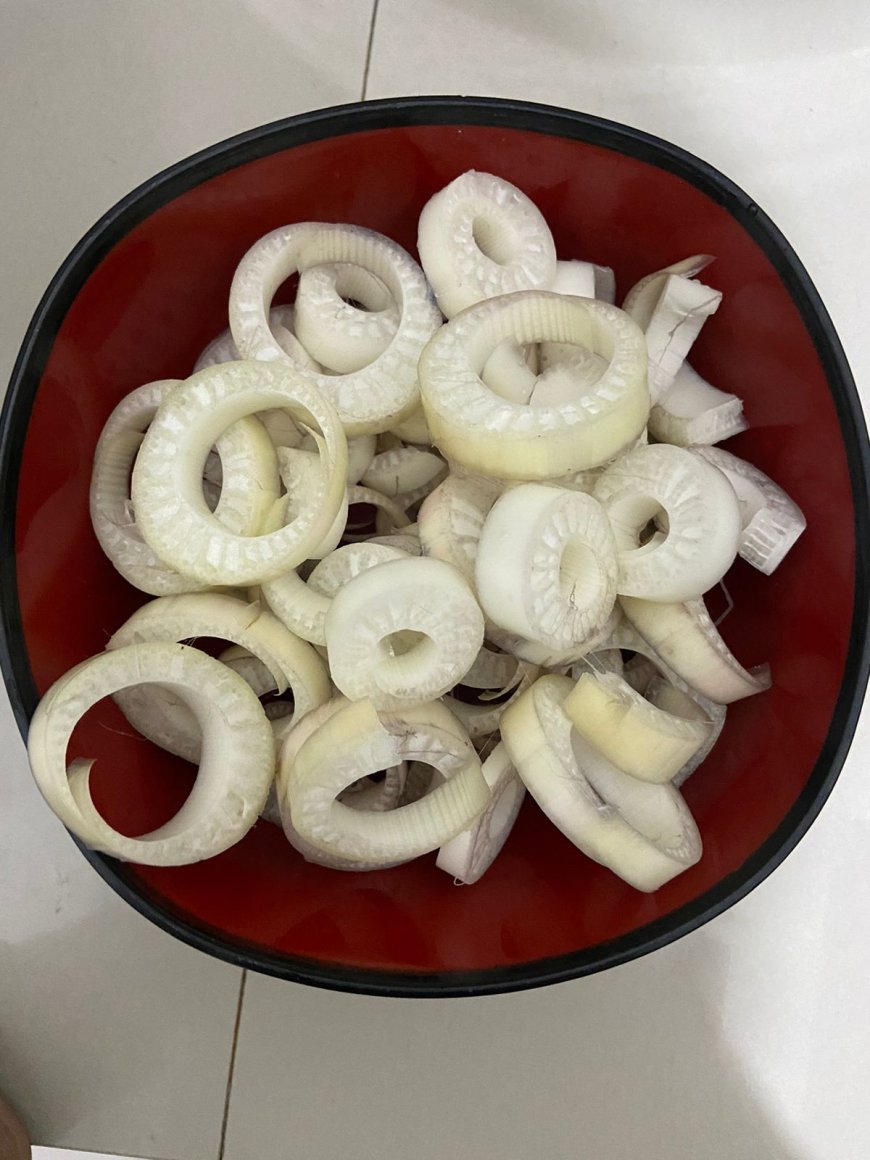 Young banana tree stem (photo source: personal collection)
Young banana tree stem (photo source: personal collection)
3.Base Genep (Basic Spices):
- Shallots: Provide a delicious aroma and flavor.
- Garlic: Adds a distinctive fragrance.
- Turmeric: Besides giving a yellow color, turmeric also adds a unique taste.
- Ginger: Adds warmth and an appetizing aroma.
- Galangal: Refreshes and enhances natural fragrance.
- Lemongrass: Provides a fragrant aroma and a refreshing, unique taste.
- Chilies (large and curly): For spiciness; the amount can be adjusted to taste.
- Salt: Adds the perfect savory taste.
- Water: Used for cooking and to create a delicious broth.
- Pepper: Adds a mild spiciness and distinctive aroma.
- Candlenuts: Adds a savory taste and provides a rich texture.
- Coriander: Adds warm spiciness and a distinctive aroma.
- Shrimp Paste (optional, depending on the dish): Provides a savory taste and a strong distinctive aroma.
- Cloves: Adds a warm, slightly sweet aroma.
- Etc: Other kitchen spices and seasonings.
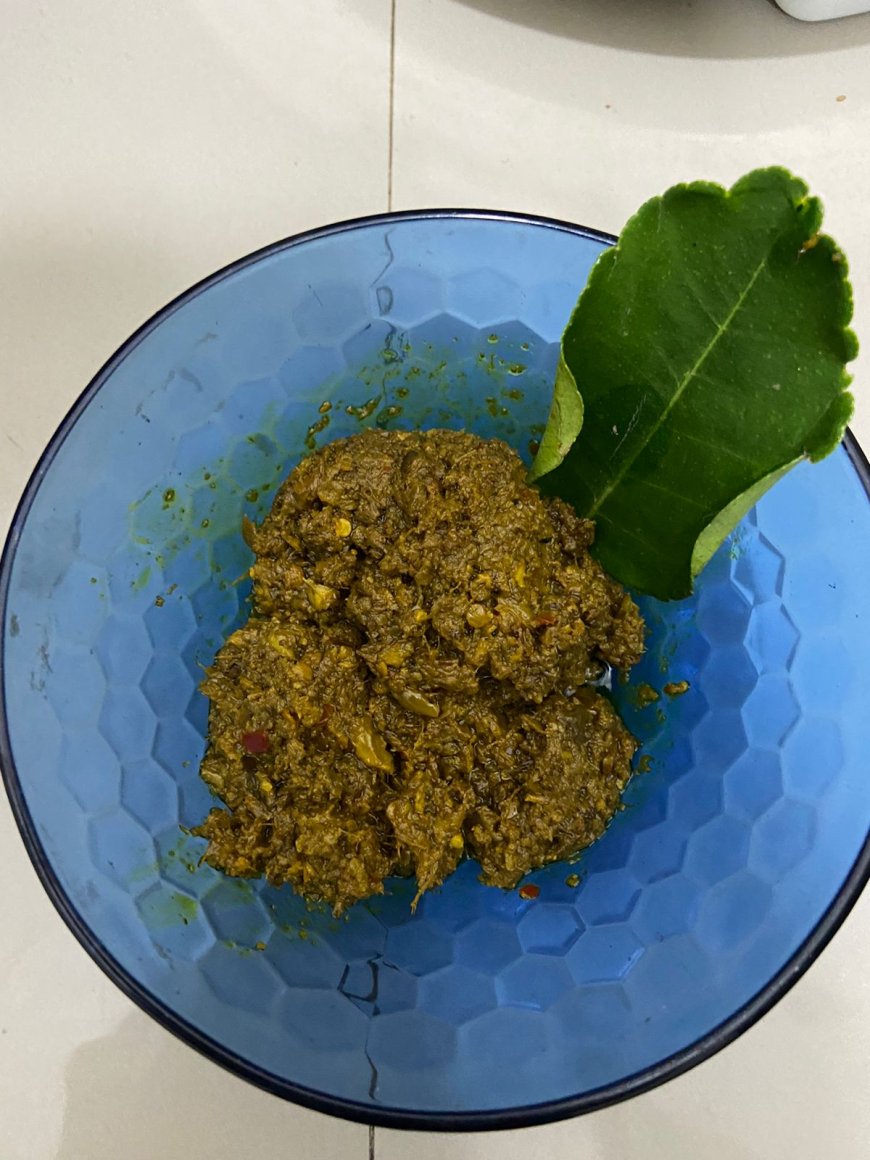 Base genep (photo source: personal collection)
Base genep (photo source: personal collection)
Jukut Ares is made through detailed steps to achieve optimal flavor. This process is essential for creating a dish that is tender, savory, and rich in taste. Here are the steps to prepare Jukut Ares:
Steps to Make Jukut Ares
1.Preparation of Banana Stem: Cut the young banana tree stem into thick slices according to your preference. Ensure that the slices are not too thin so that they maintain a chewy and tender texture when cooked.
2.Soaking: Soak the sliced banana stems in salted water for a while until they become soft. This process is important for removing the natural bitterness of the banana stem and helps the ingredients absorb the spices better during cooking.
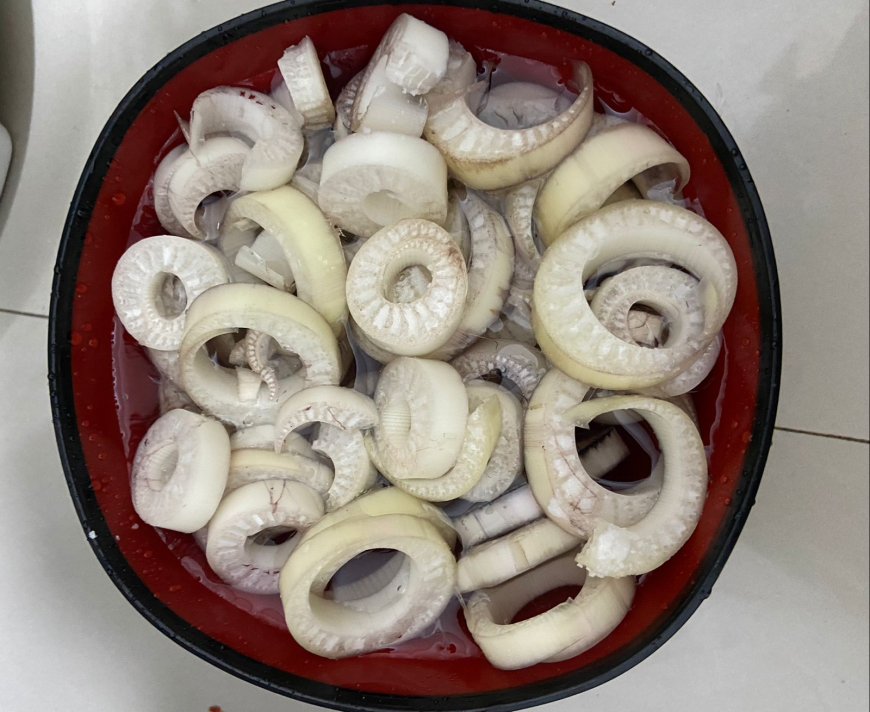 Soak the sliced young banana tree stem in salt (photo source: personal collection).
Soak the sliced young banana tree stem in salt (photo source: personal collection).
3.Rinsing the Banana Stem: After soaking, squeeze the banana stem to remove excess water and wash it with fresh water to ensure that any leftover salt and dirt are completely rinsed away.
4.Preparing the Meat (optional): If using meat, cut the pork or chicken into small pieces, then mix it with the ground base spices to allow the spices to penetrate the meat.
5.Cooking: Add the cleaned banana stems to a pot along with the base spices and meat (if using). Ensure that all ingredients are well combined.
6.Cooking Process: Cook the mixture over medium heat. Stir gently to combine the spices with the banana stem and meat. Add enough water to create a delicious broth, and let it simmer until all the ingredients are cooked through and the flavors are well infused.
7.Serving: Once cooked, remove Jukut Ares from the pot and serve it in large portions. This dish is often enjoyed with warm white rice, making it a perfect complement.
8.Enjoying Together: Jukut Ares symbolizes togetherness. It can be enjoyed with family or friends, creating a warm and pleasant atmosphere.
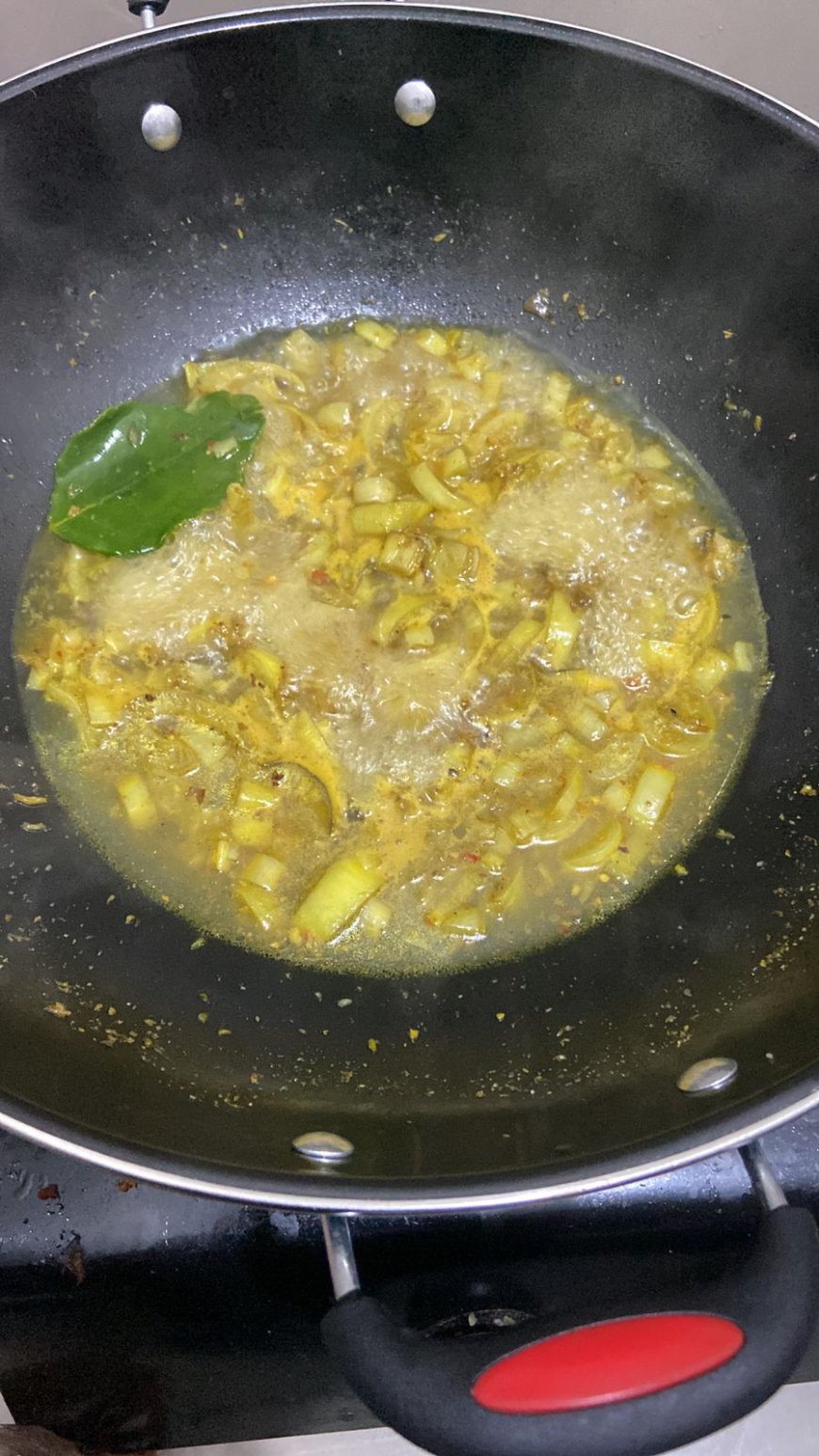 Cooking process while waiting for it to be done (photo source: personal collection).
Cooking process while waiting for it to be done (photo source: personal collection).
The distinctive taste of Jukut Ares comes from the combination of young banana stems and the abundant base genep spices. Each bite offers a savory, sweet, and slightly spicy flavor that enhances the appetite. This dish not only provides delicious taste but also good nutrition for the family, as banana stems contain important fiber and minerals.
Jukut Ares is particularly suitable for various family gatherings or celebrations, where warmth and affection are shared. The tradition of serving Jukut Ares is a valuable part of Bali's rich culinary culture that must be preserved. Amid the tides of modernization, it is important for the younger generation to recognize and understand such traditional dishes to maintain their cultural roots. Many families in Bali continue to uphold the recipe for Jukut Ares passed down from their ancestors, preserving the authentic flavors that are always longed for in every meal.
Jukut Ares is not merely a culinary dish; it is also a symbol of the rich identity and culture of Bali. Each serving carries an implicit story, reminding us of the values of Balinese life that are closely tied to nature and tradition. By tasting Jukut Ares, we not only savor the delicious food but also gain a meaningful cultural experience. This cuisine serves as a bridge between generations, strengthening family and community bonds in the simplicity and beauty of culture.
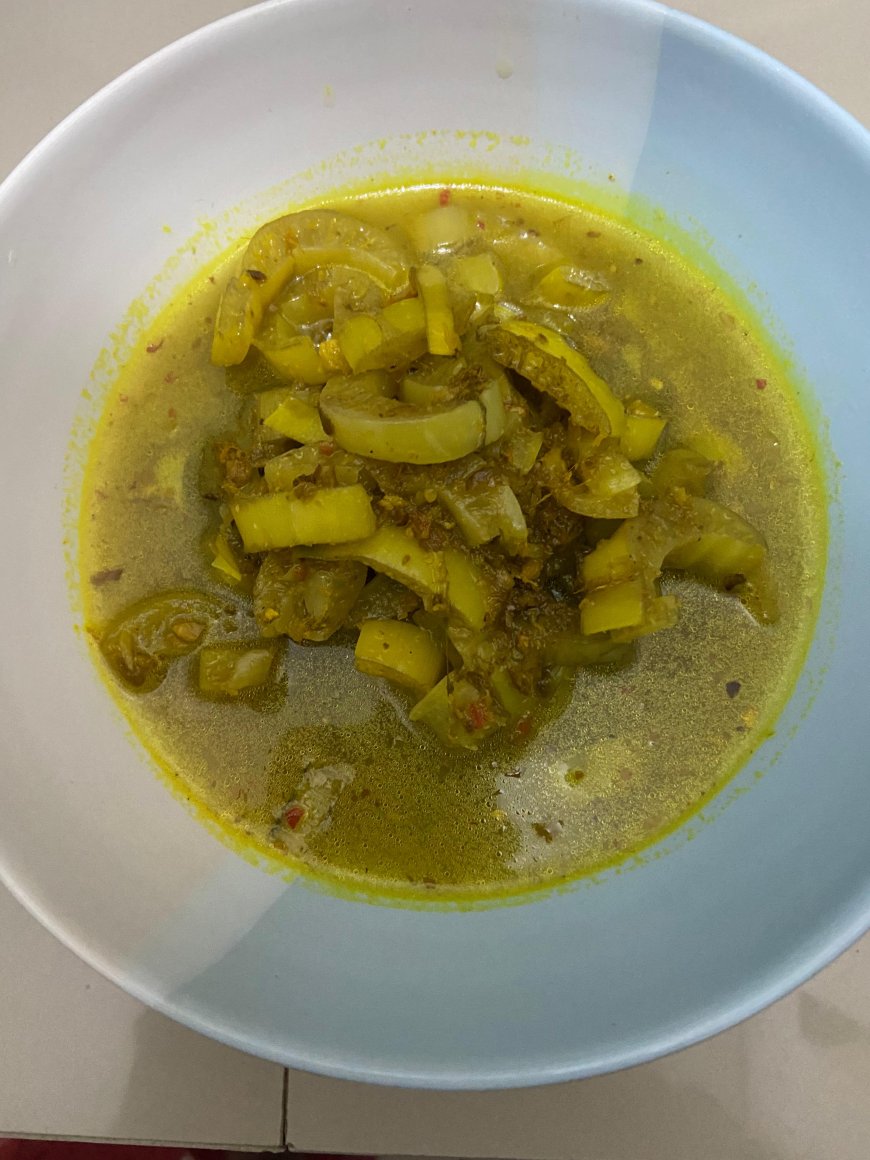 Jukut Ares ready to be served (photo source: personal collection).
Jukut Ares ready to be served (photo source: personal collection).
More than just a dish, Jukut Ares also reflects the local wisdom of the Balinese people in utilizing natural resources. This food exemplifies the wise use of local ingredients, minimizing waste, and showcasing the community's sensitivity to their surrounding environment. With every bite of Jukut Ares, there is a sense of respect and appreciation for the nature that sustains life.
Given all its uniqueness, Jukut Ares deserves to be continuously introduced and preserved, both domestically and internationally. The involvement of the younger generation in the preservation of this culinary tradition is crucial for maintaining the sustainability of Balinese culture. Various activities, such as culinary festivals, cooking workshops, and social media promotions, can help elevate Jukut Ares as one of Indonesia’s culinary icons on a global stage. This cuisine has the potential to attract many people to experience the uniqueness and deliciousness of traditional Balinese food, rich in the noble values of the archipelago’s culture.

















































